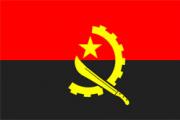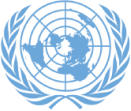Security Council
Maintenance of International Peace and Security
Water, Peace and Security
Open Debate
22 November 2016
Statement
Mr. President,
We are grateful to the Senegalese Presidency of the Security Council for convening this very important debate on the critical issue of water and its linkage with international peace and security. We welcome the distinguished Minister of Foreign Affairs and Senegalese Abroad of Senegal, Mr. Mankeur Ndiaye for Presiding over our debate.
We equally welcome the Secretary-General, Mr. Ban Ki Moon, Mr. Danilo Turk, Chair of the Global High-Level Panel on Water and Peace, Ms Christine Beerli, ICRC Vice-president and Mr. Sundeep Waslekar, President of the Strategic Foresight Group, for their insightful remarks.
Mr. President,
Water is the most important resource on earth: it is the source of biological and human life; it was around water settings, rivers, lakes and seas that human culture was born and civilization flourished; geo strategy has been conditioned by the access to water resources.
Contemporary life is characterized by increasing portions of the world experiencing scarcity of clean and safe drinking water; nearly 1.7 billion people, in the developing world, do not have access to it, while in some countries or regions, people take water for granted, wasting water ease and it even became an extreme lucrative business.
Water has become an essential part of the international political agenda, a global challenge and a critical issue confronting our societies: water, and the access to it, is at the core of climate change, of health and nutrition crisis, environmental degradation, and also at the origin of conflicts, and serious social and political issues.
The recognition by the UN General Assembly that water and sanitation constitute a fundamental human right was a decisive step forward in changing the paradigm on how the water issue is perceived. The establishment of the Global High-Level Panel on Water and Peace, aimed at proposing a global architecture to transform water from a source of potential crisis to an instrument of cooperation and peace fully translates the contemporary concern and awareness on the issue.
The relationship between water and peace is at the center of international concerns, and the management of watercourses and river basins has been an historical central piece of international cooperation.
The management of the Senegal and Gambia Rivers is an outstanding and inspirational example of regional cooperation in the management of water assets, by the bordering countries: through an exemplar regional cooperation those rivers are common good transcending national interests.
However, such good practice has not always been the rule, and competition for water, to irrigation and grazing, as well as the lack of access to drinking water are increasing sources of conflict in some countries and regions.
Still in the Sahel Region, in the Lake Chad Basin, in other parts of Africa and the world, poor water management is at the origin of water shortages and a source of conflicts among farmers and cattle herders belonging to the same communities.
Mr. President,
The Lake Chad Basin is, eventually, one of the most dramatic cases, with the linkage between water, peace and security at the center stage. Due to poor cooperation between its adjoining countries, it faces enormous challenges that threaten its very existence and the survival of millions of its inhabitants. The Lake Chad Basin can no longer afford enough water resources for the livelihoods of their inhabitants, who are forced to leave for a future of uncertainty, poverty and quite often to total disenfranchisement.
The Lake Chad resources benefit around 20 million people living on its shores in four countries; the Lake supports the local economy, fundamentally based on fishing, agriculture and cattle raising. However, its inhabitants see their sources of livelihood in peril, with the Lake at the brink of ecological disaster, by becoming a tiny fraction of its former size.
The challenges confronting the Lake Chad are distinct, yet interrelated: a set of factors due to human activities and shifting climate patterns - like the diversion of large quantities of water from inflowing rivers, irrigation for crop production, and increasing demand for water have strongly impacted on the decline of the Lake’s size.
This situation led to security threats linked to growing poverty and unemployment, youth radicalization and terrorism; and a huge humanitarian crisis, in the backdrop of high rates of population growth, extreme poverty, food and nutrition crisis.
The international community is stringent called to do something tangible in assisting to solve the environmental degradation of a region that has been, historically, an economic and cultural hub of African culture and civilization.
Several initiatives at the national and regional levels have been undertaken to manage the Lake’s shrinking water resources and reverse the trend towards its extinction. These initiatives are a demonstration of the deep concern of the people, governments and the international community with the current state of affairs.
The Lake Chad Basin Commission, a regional initiative, established with the objectives of inter alia regulating and controlling the utilization of water and other natural resources in the Basin, while relatively active and with some achievements, did not deliver visible improvements in the Lake’s water replenishment.
The Commission has developed the Lake Chad Replenishment Project, with the objective of regenerating the Lake through the annual transfer of 900 m3 of water from the Oubangui River by way of a navigable channel to Lake Chad, aimed at reversing the land and water degradation and reviving the Lake’s ecosystem.
This ambitious project has the potential to radically change the situation in the Basin and the lives of its populations. The countries of the region, and the international community, should assume their collective and irrevocable responsibilities by strengthening political will and seriously consider extending tangible support to the project since, if not rapidly reversed, the current situation has the potential to become yet another hotbed of crisis and conflict, as well as a real threat to regional and international peace and security.
Mr. President,
We take this opportunity to highlight Angola´s experience related to water resources, its use and management. The Government of Angola created the Institute of Water Resources and implemented a national program for water distribution and sanitation all over the country, as well as the management of trans boundary watersheds.
We note, however, that the provision of water to all communities in the country remains a huge challenge to overcome, despite the rich water resources of which Angola is endowed, calling for continued efforts, financial, technical and also educational.
At the regional, the Okavango River Basin Commission (OKACOM), was established by Angola, Botswana, and Namibia to promote and strengthen the integrated, sustainable management, use and development of the Cubango-Okavango Basin, respecting internationally recognized best practices in order to protect biodiversity, improve the livelihoods of the basin communities and for the States' development.
The countries of the Okavango River Basin Water Commission organize several conferences and forums for the implementation of the Strategic Action Program for the management of the Okavango River Basin.
Many of Angola’s major rivers flow through neighboring countries and, therefore, Angola is poised to strengthen cooperation with countries of the region in the management of water reserves, in order to avoid future conflicts due to access to water resources.
To conclude, Mr. President,
It is evident that water shortages, national egoisms and bad management of water resources may cause tensions, among populations and nations in many regions of the world, and that they can be a potential source of conflicts.
It is crucial that the international community works in a cooperative way in such critical issue, by raising international awareness, encourage developing countries to prioritize water and sanitation in their national programs, to integrate water management into global food security, health, and climate change initiatives in order to prevent and counter future water crisis and preserve peace and security in the world.
I thank you, Mr. President.


